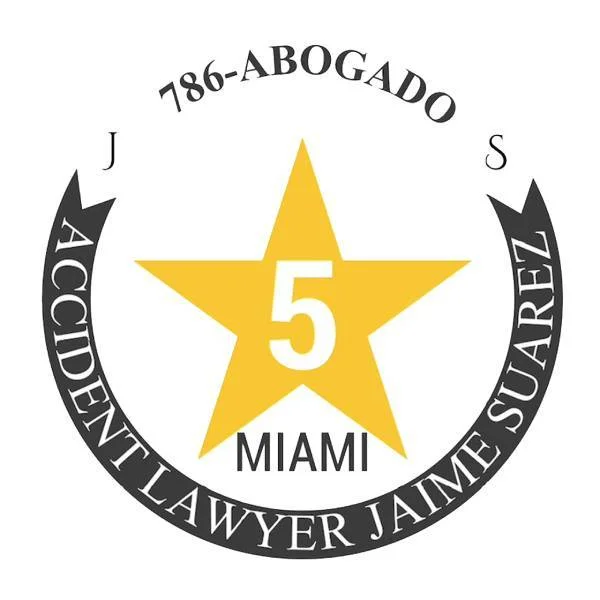In the chaotic hours and days following a car accident, your first instinct might be to shake it off and get back to your routine — especially if you don’t feel immediate pain. But make no mistake: your first medical visit after an accident could make or break your injury claim. As a personal injury attorney who’s helped countless accident victims across South Florida, I’ve seen how a single comment or missed detail in that first appointment can cost clients thousands in compensation.
This blog is your no-nonsense guide to navigating that critical first visit like a pro. Whether you walked away from a fender-bender or were taken from the scene by ambulance, the steps you take next will shape how seriously your injuries are taken — by doctors, insurers, and the law.
1. Tell the Full Story
A lot of people make the mistake of minimizing their symptoms. Maybe you’ve said it yourself: “I’m fine,” or “It’s probably nothing.” Unfortunately, those words can come back to haunt you. Insurance adjusters scan medical records looking for any reason to downplay your injuries, and if it’s not in your chart, it might as well not exist.
Be specific. Did you feel dizzy after the crash? Say so. Is your lower back aching when you stand? Mention that. Even if the pain seems minor, mention everything you’re feeling — physically and emotionally. Jot down symptoms ahead of time if needed.
2. Connect the Dots Between the Crash and Your Pain
In the legal world, we call this causation. Your medical provider must understand — and document — that your pain began because of the accident. That means you should start your visit by clearly stating something like:
“I was rear-ended at a red light on NW 36th Street last Friday. Since then, I’ve had pain in my neck and right shoulder.”
This cause-and-effect language builds the foundation of your injury claim. If you wait days to seek treatment or don’t mention the crash at all, the insurance company will argue your injuries weren’t related — or didn’t exist at the time.
3. Don’t Focus Only on the Worst Pain
Yes, your back may be your main concern — but don’t forget to tell the doctor about other discomforts too. Headaches, stiffness, numbness, tingling, sleep problems, anxiety — all of these symptoms matter. Often, injuries that seem small at first (like wrist pain or a sore jaw) can worsen over time. If they’re not documented early, it becomes difficult to prove they were caused by the accident.
4. Avoid Vague Language — Be Clear and Consistent
There’s a big difference between “It kind of comes and goes” and “I have sharp pain in my left knee every time I walk down stairs.” Be as precise as possible. If your symptoms change throughout the day or get worse at night, say that. Medical records are critical when negotiating with insurance companies, and a strong, detailed record puts pressure on them to offer a fair settlement.
5. Follow Through with All Treatment Recommendations
If the doctor refers you to physical therapy, imaging (like an MRI), or a specialist, don’t delay. One of the biggest red flags for insurers is when a patient skips appointments or stops treatment early. Even if you start to feel better, stopping too soon could hurt your case — and your health.
If you ever have to explain why you stopped treatment, the reason better be medical, not convenience. Insurers will say that if you were really hurt, you would’ve followed your doctor’s orders.
6. Organize and Save All Medical Documents
After every appointment, ask for a copy of your discharge instructions, referrals, test results, and any notes from the doctor. Create a physical folder or digital file with every record related to your injury and treatment.
When it’s time to file a demand letter or prepare for settlement negotiations, these documents are your strongest weapon. A clean, organized medical history tells a powerful story — one that insurance companies can’t easily dismiss.
7. Don’t Mention Legal Matters at Your Appointment
This is a subtle but important point. Avoid saying things like “My lawyer told me to come” or “I need this on the record for my lawsuit.” While doctors are there to help, they’re not legal professionals. And once that kind of language makes it into your chart, insurance companies will argue that your treatment was driven by money, not medical necessity.
Stick to the facts about your symptoms and the crash itself. Let your attorney handle the legal side of things.
8. Keep Your Story Straight
Everything you say — to police, doctors, your lawyer, and your insurance company — needs to align. Even small inconsistencies, like telling one doctor you were hit on the driver’s side and another that it was the rear, can raise red flags. Adjusters love to use these details to argue that your story doesn’t add up.
If necessary, write out a timeline of the crash and your symptoms before your appointment. That way, you’ll be ready to report everything accurately.
9. Ask for Causation Language — If Appropriate
If the doctor agrees your injuries are consistent with a car crash, ask them to include that in their notes. A simple statement like “Patient’s symptoms are consistent with injuries caused by a motor vehicle collision” can make a world of difference during settlement talks.
Not all doctors will include this language, and it must be medically accurate — but when appropriate, it helps remove any doubt that the crash caused your injuries.
10. Consult Your Lawyer Before Your Visit If You’re Unsure
If you’re unsure what to say or how to document things properly, don’t guess. Call your lawyer before your visit. A good personal injury attorney will walk you through how to handle the appointment, what to focus on, and what pitfalls to avoid.
Your lawyer isn’t just fighting for compensation — they’re helping you preserve your credibility and protect your future care needs.
Final Thoughts from Mr. 786 Abogado
At the end of the day, your first medical visit is more than just a health check — it’s the first chapter in the legal story of your accident. Every word, every note, and every follow-up appointment adds weight to your case.
I always tell my clients: Don’t try to tough it out. Document everything. Follow the treatment plan. And call me if you have questions.
If you’ve been hurt in a crash and aren’t sure what to do next, call Jaime “Mr. 786 Abogado” Suarez today to Get You Paid!



